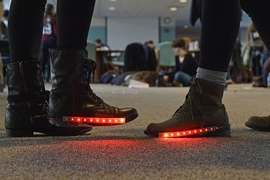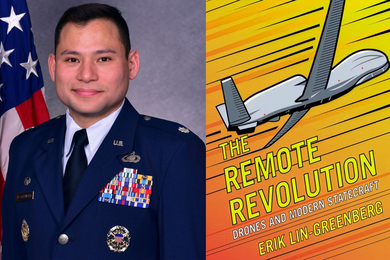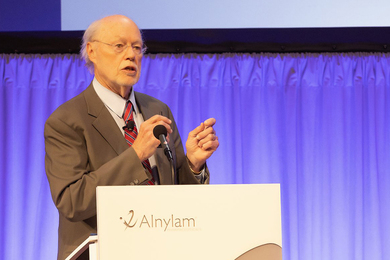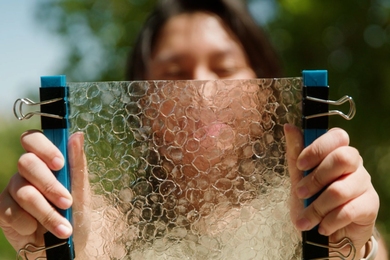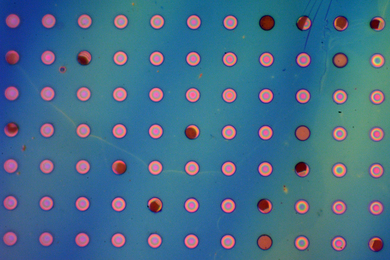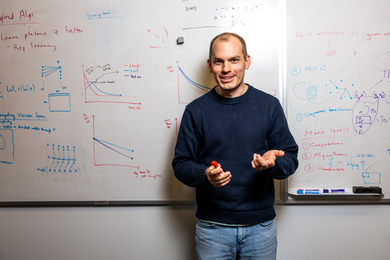This summer, the Materials Research Laboratory (MRL) Materials Research Science and Engineering Center (MRSEC) sponsored a motor-building workshop titled Dustbusting by Design on the MIT campus.
Forty high school girls participating in the MIT Women’s Technology Program in Electrical Engineering and Computer Science (WTP-EECS) and eight middle and high school science teachers in the MRSEC Science Teacher Enrichment Program (STEP) spent four days in the Pappalardo Lab on campus engaged in the engineering design process.
The week began with a lecture on the physics, engineering, and design challenges of a small DC motor by Steven Leeb, MIT professor of electrical engineering and computer science and mechanical engineering. During the following days, the students and teachers worked in teams in the machine shop to design and build their own DC motors, culminating in a “spin-off” to determine which motor was fastest.
WTP-EECS is a residential four-week summer program at MIT for rising female high school seniors who have demonstrated high achievement in math and science. The objectives are to increase young women’s interest in, and confidence to pursue, electrical engineering and computer science careers. The WTP-EECS curriculum includes classes in math, electrical engineering, and computer science, in addition to the motor-building workshop.
The STEP is an opportunity for local middle and high school teachers to experience the engineering design process in a hands-on workshop and to consider its classroom applications. After the “spin-off,” the teachers are presented with a series of polymer demonstrations for classroom use, followed by a discussion with Leeb about strategies for teaching engineering design in the context of different subjects. In the course of this discussion, Leeb shared some of the hands-on design projects he employs in teaching his first-year seminar at MIT.






